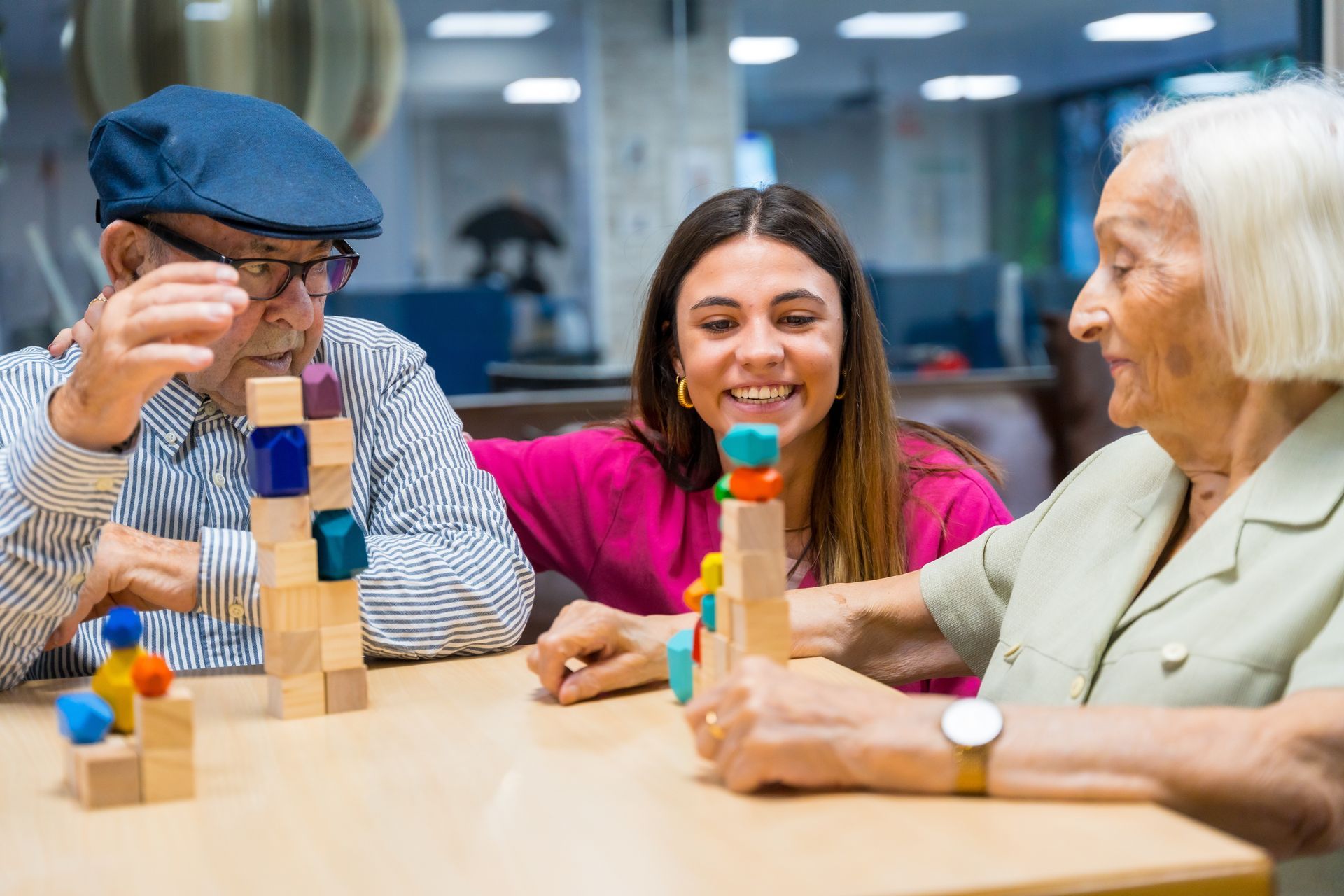BLOG
Adult Day Centers
Adult day centers are designed to meet the needs of individuals with dementia and to support their strengths, abilities and independence. Centers typically have staffed activities such as music and exercise programs and discussion groups.
Why use an adult day center
One reason to use an adult day center is to give yourself a break from caregiving. While your loved one is at a center, you’ll have time to rest, run errands or finish other tasks. As a result, you’ll return to caregiving responsibilities feeling refreshed and renewed. If you find yourself feeling guilty, ask yourself, “If I wear myself out to the point of total exhaustion, what good will I be to the person with dementia?
Adult day centers also offer the person with dementia opportunities to be social with others and participate in activities in a safe environment.
Selecting a center
Adult day centers can vary. To choose the best setting for the individual with dementia, do the following:
- Consult a variety of sources to find an appropriate adult day center. Many caregivers rely on the advice from their local Alzheimer’s Association and from other caregivers.
- Call your local senior center or area agency on aging, too. Give the day center a chance. Consider using its services at least twice a week for a month before making a final decision. Occasional use won’t give you an accurate picture of how the center operates. In addition, give the person time to adjust to the experience of going to the center. While some people may resist going to the center at first, they often look forward to the visit after several weeks of attending, meeting people and joining in activities.
- Reevaluate your need for adult day services. At some point the person with Alzheimer’s may need more care than the center can provide. Center staff and support groups can help evaluate your needs for future care.
Evaluating an adult day center
Consider the following when you evaluate an adult day center.
Center clients
Does the center provide services for people with different types of impairments as well as those in good physical health? Knowing about any service restrictions before using the center may help prevent problems.
Assessment
Will the center evaluate the person’s needs? How will this evaluation be accomplished and how often will it be repeated? Will it cover medical needs, social and family history, cognitive functioning, and social skills? Some centers perform assessments in the person’s home.
Services
Does the center offer the services that you and the person with dementia need? These are some of the specific services you may want to investigate. (Keep in mind that few adult day programs offer all of the services described below, and not all of the services are necessary for a program to be of high quality.)
- Counseling
Will the center provide support for clients and families? For example, can they offer guidance on outside resources and arrange for supportive care in the home?
- Health services
Will the center provide blood pressure checks and physical, dental, foot, eye and ear examinations? Will the center dispense medication and/or offer medication reminders?
- Nutrition Does the center provide nutritious meals and snacks? To make sure, you may want to sample one of the meals. In addition, can the center accommodate special diets or provide a culturally specific menu? And does the center provide some sort of nutritional education program?
- Personal care
Will the center’s staff provide help with hairstyling, toileting, eating, showering and other personal care tasks?
- Activities
Does the center offer a program of activities that the person with dementia can participate in and enjoy?
- Behavior management
Is the center prepared to deal with wandering, incontinence, hallucinations,sexually inappropriate behavior or speech difficulties?
- Therapy
Will the center help arrange for needed physical, occupational or speech therapy? Are there therapists onsite or on-call?
- Special needs
Is the center equipped to deal with someone who uses a wheelchair, who is hearing or visually impaired, or who is handicapped in another way?
Accessibility
Most centers are open from early morning to early afternoon. Some have extended or weekend hours. People may attend the center as little as one day per week or as many as five.
Be sure to ask about the minimum attendance requirements and the notification policy for absences
Cost
Many centers offer services on sliding scales, where caregivers pay according to ability or income. In some states, Medicaid covers cost for people with very low income and few assets.
Be sure to ask about basic fees, financial assistance and additional charges for such services as crafts or field trips.
Location and transportation
Getting to and from some centers may consume a large part of your day and be stressful on the person. However, some centers offer pick-up and drop-off transportation services, while others provide transportation for outings and medical appointments. Be sure to ask about the policy for late arrival or late pick-up.
Facility
Evaluate the overall appearance and quality of the facility. Is it warm, inviting and free of clutter? Is there adequate space for activities? Is there space available for outdoor activities? Are there secured areas for outside walking?
Staff
Assess the qualifications of the staff. What is the number of staff for each client? Do staff members have dementia-specific training? Does the center have a physician, nurse or health care professional on staff or on-call? If the center uses volunteers, are they adequately trained and supervised? Is staff warm and friendly to family members and caregivers? How well does the staff handle people with behavioral problems?
The Alzheimer’s Association is the leading voluntary health organization in Alzheimer care, support and research.
Updated October 2004














